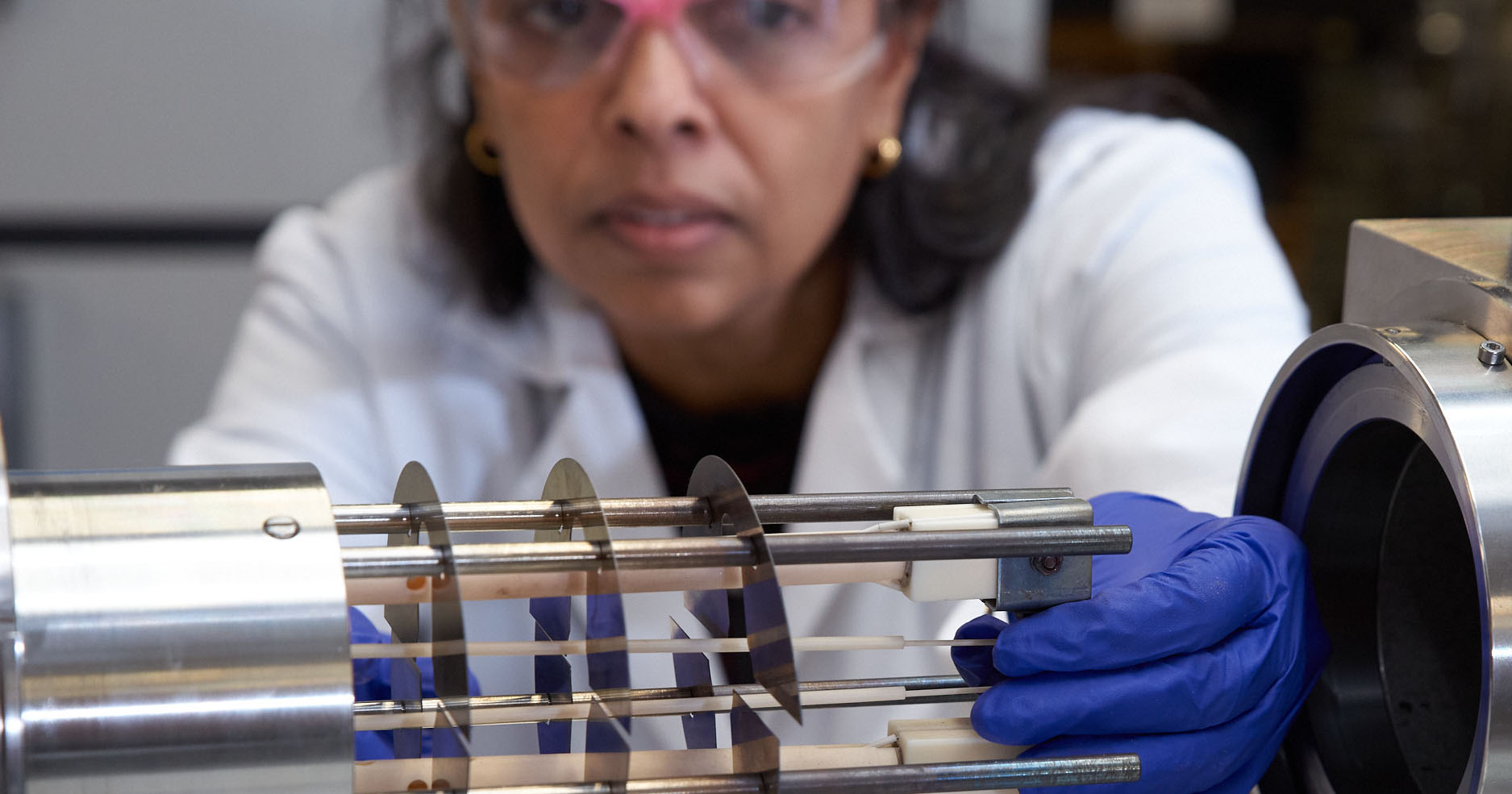Graduate – Physics Overview
 The Department of Physics and Astronomy at Clemson University offers several options for graduate students, including two options for getting a Master of Science degree in physics. The thesis option culminates in the writing of a thesis submitted to the graduate school. The non-thesis option requires 30 credit hours of graduate course work.
The Department of Physics and Astronomy at Clemson University offers several options for graduate students, including two options for getting a Master of Science degree in physics. The thesis option culminates in the writing of a thesis submitted to the graduate school. The non-thesis option requires 30 credit hours of graduate course work.
A Ph.D. degree is also offered that begins with the core courses intended to prepare students to carry out and publish independent scientific work.
Graduate Degree Options
Astronomy and Astrophysics
Astronomers at Clemson use telescopes, satellites and numerical models to observe, explore and understand the universe around us.
Atmospheric and Space Physics
Atmospheric and space physics is the study of dynamical, thermal, radiational, electro- and magnetodynamical processes that determine the structure, composition and energy, and momentum budget of the atmosphere.
Atomic, Molecular, Optical
Atomic, molecular, and optical physics is the study of the individual properties of atoms and molecules as well as the interactions between themselves and with photons.
Biophysics
Biophysics applies principles of physics, chemistry, mathematical analysis and computer modeling to study biological molecules, structures and metabolic networks, with a focus on both experimental and computational approaches.
Condensed Matter Physics
Condensed matter is the branch of physics concerned with the nature and properties of matter and energy.
Plans of Study
Master of Science
There are two options for getting a Master of Science degree in physics at Clemson.
- Thesis option: The thesis option requires 24 credit hours of course work with at least 12 hours at the 8000 level or above, plus at least six hours of PHYS 8910 — Research in Physics and Astronomy, which culminates in the writing of a thesis submitted to the graduate school.
- Non-thesis option: The non-thesis option requires 30 credit hours of graduate course work.
In both cases, at least half of the credit hours must be from graduate courses numbered 8000 or above. A master’s student has six years to complete a degree; however, it is expected that full-time physics students should complete their master’s degrees within two years of their arrival at Clemson.
Students who pass their master’s defense and intend to pursue a Ph.D. must reapply to the Ph.D. program. This involves completing another application for admission. Students who are staying within the same department should not incur another application fee. Those who had less than the three references required for the Ph.D. program when accepted will be required to obtain additional references. Otherwise, the original references can be used.
Doctor of Philosophy
Study for the Ph.D. degree begins with the core courses intended to prepare students to carry out and publish independent scientific work. The core courses are PHYS 8110, 8150, 8210, 8410, 9510 and 9520. The core courses must be completed by the end of your second year, in parallel to scientific research PHYS 9910. Students are also required to take four advanced elective courses at the 8000–9000 levels. These courses must be selected in consultation with a student’s advisory committee and will form part of the student’s plan of study. These courses may be drawn from offerings in physics and astronomy, or from programs in related fields. The purpose of these electives is to provide a well-rounded physics education and additional coursework necessary for a student’s research area. Committees may require additional courses and/or professional development seminars, and students may want to take additional courses to support professional goals.
Our students come from diverse academic backgrounds. We thus administer a placement diagnostic exam to new students during orientation in August. This written exam covers four topics: classical mechanics, statistical mechanics, electromagnetism and quantum mechanics, and we will provide a question testbank to newly admitted students in early May. Based on a student’s performance on each topic, the student will either be required to take the relevant 6000-level courses before taking the core 8000/9000 level courses, or directly take the core courses. The purpose is to give students the best possible preparation for academic success in the core courses and your scientific research.
To apply for admission for candidacy, students must:
- Score a minimum average GPA of 3.0 in the student’s six core courses.
- Pass the comprehensive examination — an oral exam that must be taken before the end of a student’s sixth semester. The examination committee will probe the student’s understanding of the underlying physics of each student’s problem, knowledge of the literature in the field and the tractability of the problem posed.
At least three weeks prior to the graduation at which a student expects to receive the Ph.D. degree, a final oral examination — defense — on the dissertation must be successfully completed.
